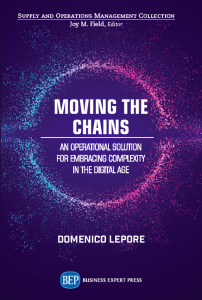
The Intelligent Management team is currently in northern Italy where the Coronavirus has created unprecedented levels of disruption to daily life and to businesses and the economy at large. The extraordinary circumstances, however, have also highlighted the unique advantages of a solution developed by one of our oldest clients and dear friends at Hyphen-Italia, a software firm at the forefront of digital business innovation. We are very proud of their recent success story with the global brand Ferragamo. This prestigious brand was facing the devastating prospect of not being able to present their products to over 1,000 Chinese buyers unable to travel to Italy for Milan Fashion Week. To overcome this near catastrophe, Hyphen-Italia built a “Virtual Showroom” for Ferragamo in record time, reflecting their unique work in the field of Digital Innovation.
The CEO of Hyphen-Italia, Stefano Righetti, has long embraced the Deming and Goldratt approach developed by Intelligent Management. The following paragraphs are an extract from Stefano’s chapter that is an essential part of the new book by our Founder Dr. Domenico Lepore. It reveals Stefano’s deep conviction that a whole system approach is crucial not just to make the most of the resources available in any organization but as a fundamental prerequisite for a successful Digital Transformation process at organizational level.
Digital Transformation is a change in company culture and involves a new understanding of how the organization must work
Transformation is no longer an option but a necessity for businesses of any size and level of complexity. It is the only way to remain competitive in a world that switches ever more rapidly between old and new ways of communicating and where omnichannel sales are key.
However, when it comes to taking action, it often becomes evident that there is a lack of clarity about what it entails. It is not simply a matter of adopting new technologies or shifting to the cloud. First and foremost, Digital Transformation is a change in company culture and involves a new understanding of how the organization must work. Digital calls for remodeling processes and information flows and adopting new business models fit to exploit the opportunities ushered in by new technologies, new media, and new communication channels. Digital technologies can help to support and manage processes. They can broaden and orient the network of conversations among the people involved. The tools and services that technologies offer can help to govern the hyper-connectivity that comes with a digital world so that it improves the quality of people’s lives and the company’s business performance.
The only way to absorb such a radical level of change is to adopt a robust approach, a rigorous method, and adequate tools. This requires both long- and short-term strategies made up of intermediate steps so that the organization can become fully digital without stumbling along the way. For example, by introducing e-commerce or entering the most frequented marketplaces (Amazon, etc.), a business will not automatically achieve higher sales and improved performance. What is required, instead, is a complete rethinking of the processes and business model with which the company does business. This rethinking must start with a thorough analysis of the current reality, followed by a consistent redesign of processes that will impact various aspects of the digital supply chain of a product. Only in this way will a company reap all the benefits of these extraordinary new digital means that would be impossible without the right amount of preparation.
Embarking on the path of digitization inevitably involves tackling an organizational redesign that is “systemic” and consistent with the project-like nature of the work being carried out. Enabling a management system based on this “network of projects” in my opinion (and experience) will certainly boost the process of digitization.
Extract from Stefano Righetti’s chapter “Interweaving the Product Supply Chain with the Digital Supply Chain to Improve Business Performance and Competitiveness” in the book by Dr. Domenico Lepore, ‘Moving The Chains: An Operational Solution for Embracing Complexity in the Digital Age’, BEP 2019.







Leave a Reply